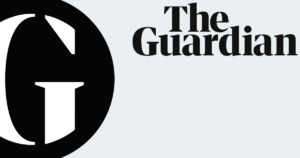Guardian Tells Partial Story re Threatened Lawsuits vs William Hill and Paddy Power
The definition of something sad: A “news” story that intentionally omits as much relevant information as it claims to reveal. An example of interest to sports bettors occurred this week, courtesy of that venerable Brit outfit The Guardian, in a feature about London legal firm Mackrell Turner Garrett preparing “compensation claims” against prominent UK-facing sportsbooks William Hill and Paddy Power Betfair. The threatened claims pertain to an unnamed problem gambler who embezzled about £1.5m from several victims, then lost that money gambling at William Hill and Paddy.
One might think, “Ho hum, we’ve seen a bunch of these stories already,” but something crucial is different with this one, something that the notoriously anti-gambling Guardian all but ignores in its scoop. Reading between the lines, the money that was lost at the two sportsbooks appears to have been stolen outside the UK, then brought into the country illegally by the embezzler / problem-gambler, whose identity the Guardian has chosen to protect.
 Here’s the issue. While the United Kingdom Gambling Commission (UKGC) has been very proactive in demanding that sportsbooks return funds to third-party victims that were later lost via gambling, every one of those episodes has involved victims who were citizens of the UK. That’s not what’s going on here, by all appearances. Here’s this from the Guardian’s screed:
Here’s the issue. While the United Kingdom Gambling Commission (UKGC) has been very proactive in demanding that sportsbooks return funds to third-party victims that were later lost via gambling, every one of those episodes has involved victims who were citizens of the UK. That’s not what’s going on here, by all appearances. Here’s this from the Guardian’s screed:
“According to the addict, his bets were funded by money he stole from clients while working in the property industry in Dubai. The gambler was interviewed by the Metropolitan police in April but has not been charged after agreeing to help his victims seek redress from the bookmakers. He cannot return to Dubai, where he believes that he would be arrested for presenting a cheque that he cannot honour – an offence in the emirate.”
No doubt. Later in the piece, the “addict” is quoted as follows: “I’m happy to face any criminal action that may come, i’ll do anything I can to help my victims get their money back.” What a pile of hogwash that is, when he knows that he cannot be prosecuted in the UK for crimes he committed in Dubai. If he was really willing to face the criminal music, he’d be on a plane back to Dubai.
Instead, in a scheme being fronted by this law firm, the idea seems to be to put as much public pressure on William Hill and Paddy Power as possible in order to try to make them offer some sort of voluntary payment to the victims. There’s a big problem, however, in that this would likely mean that both companies would end up paying the embezzled-and-lost amounts twice each, while the unnamed embezzler still gets to walk away free and clear.
Let’s take the Paddy Power situation as an example. Back in October, Paddy was slapped with a £2.2 million penalty — various parts fines, compensation, and investigative expense — over two prominent embezzled-funds cases where the stolen money was lost over time at Paddy. The matter involving Simon Price, chief executive of the Birmingham Dogs Home, was one of the two situations. In the other one, the embezzler wasn’t identified, but the Guardian story says that this was the matter involving this man, who remains on the run from Dubai justice.
The thing is, Paddy Power paid roughly £1.3 million in the October settlement as a remittance of all the profits it made from this unnamed gambler. What the Guardian doesn’t tell its readers is that those profits were in turn donated to GambleAware.
The only reason this large sum went to the UK’s leading gambling- and social-responsibility initiative, GambleAware, then becomes clear: Paddy Power earned the profit based on the illicit money in one or more of its UK shops, or via inside-the-UK online services. Knowing the funds were illicit, and also knowing that Paddy did not conduct proper diligence on this bettor, the UKGC then ordered the profits disbursed to GambleAware.
Yet the original embezzlement occurred in Dubai, so the UKGC has no mandate to reimburse those victims, wherever they may be.
Therefore, the public threats being made by Mackrell Turner Garrett are a legal sham, and that’s precisely why no actual lawsuits have been filed. Instead, with no real legal ground to stand on, the firm is trying a demonization campaign instead. Yet if Paddy — or William Hill, in the related matter — offered a settlement payment, they’d really end up paying twice.
Add in the original perpetrator walking away, even considering his self-admitted, addictive behavior. That’s not justice.
- addict
- Dubai
- embezzler
- Gambling Commission
- Paddy Power
- UKGC
- William Hill





